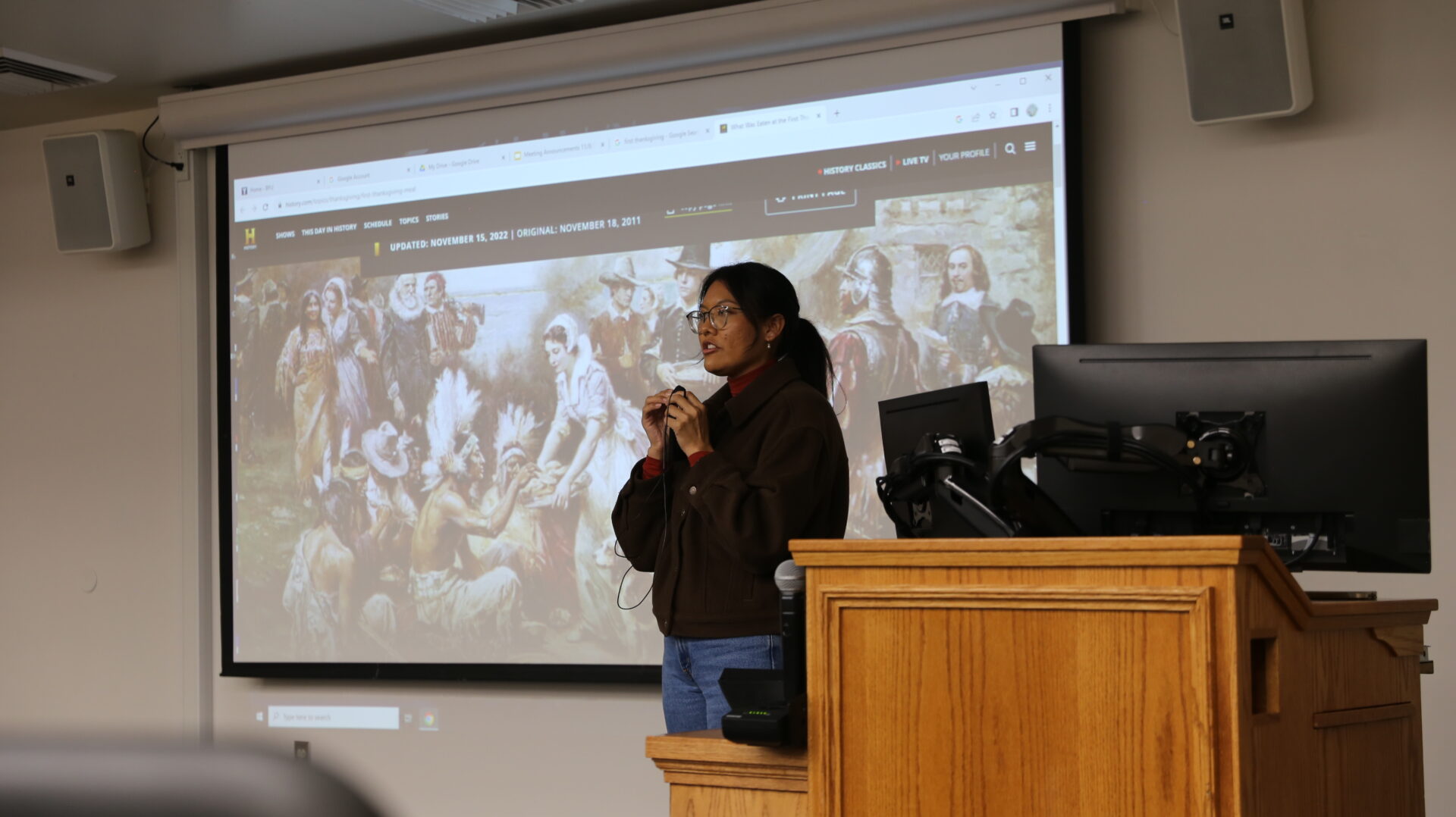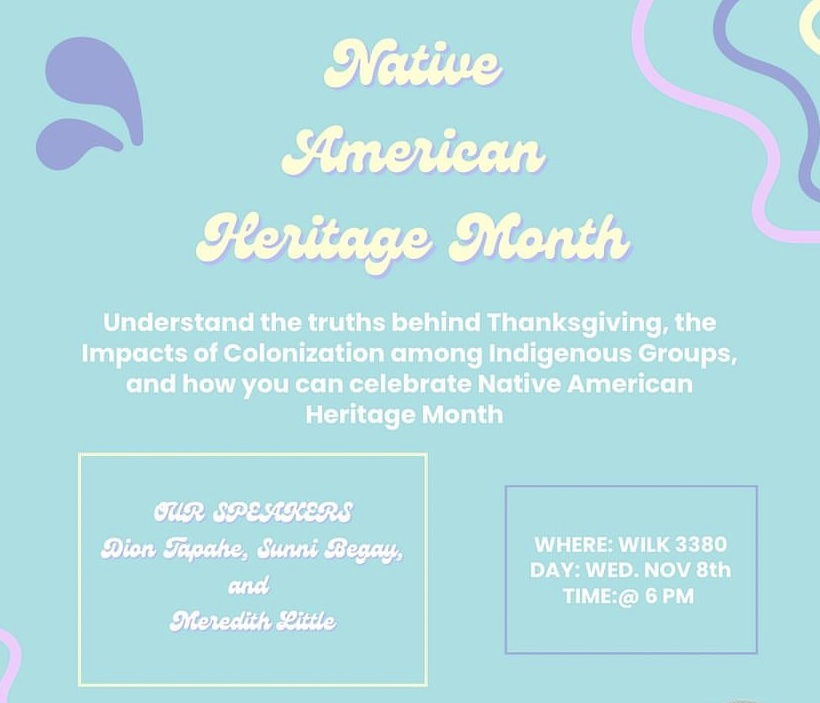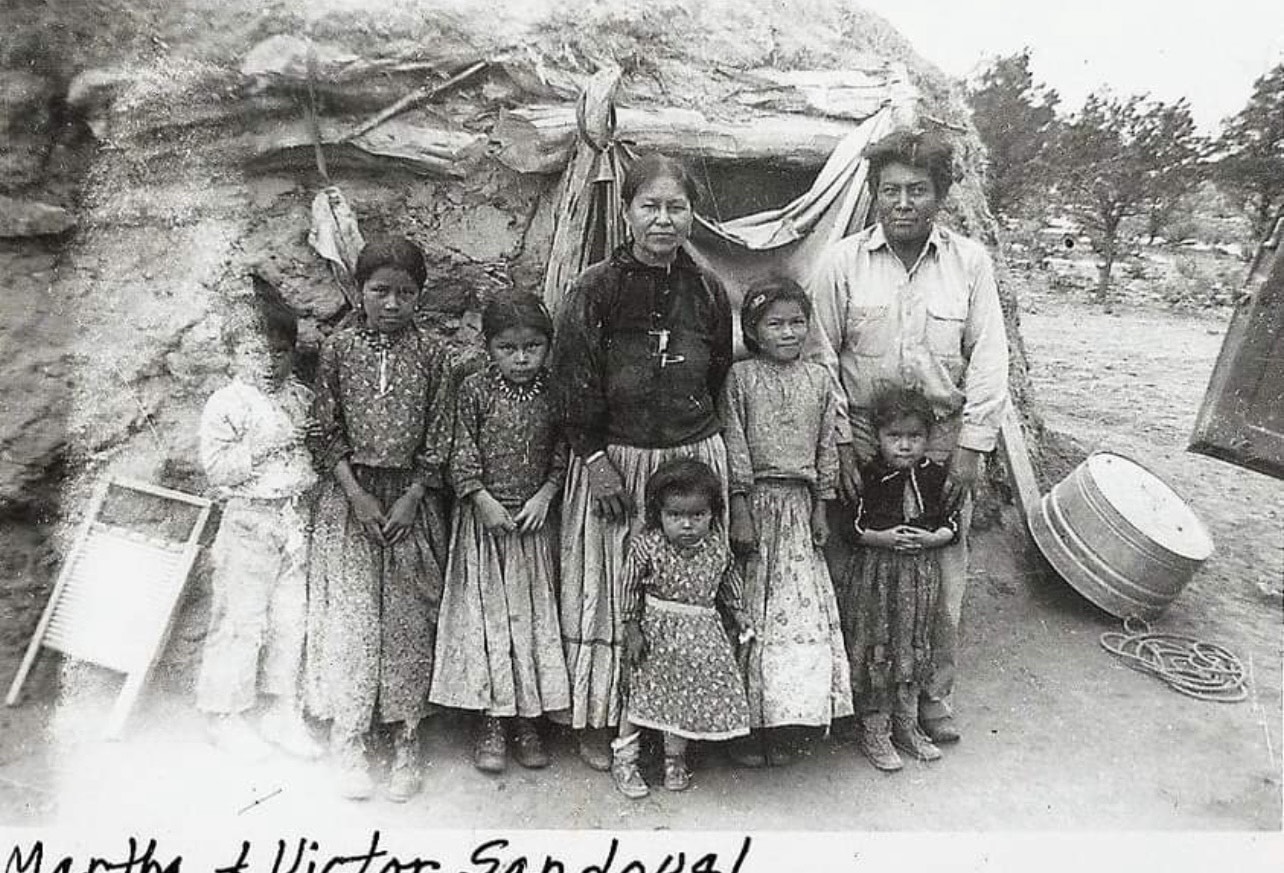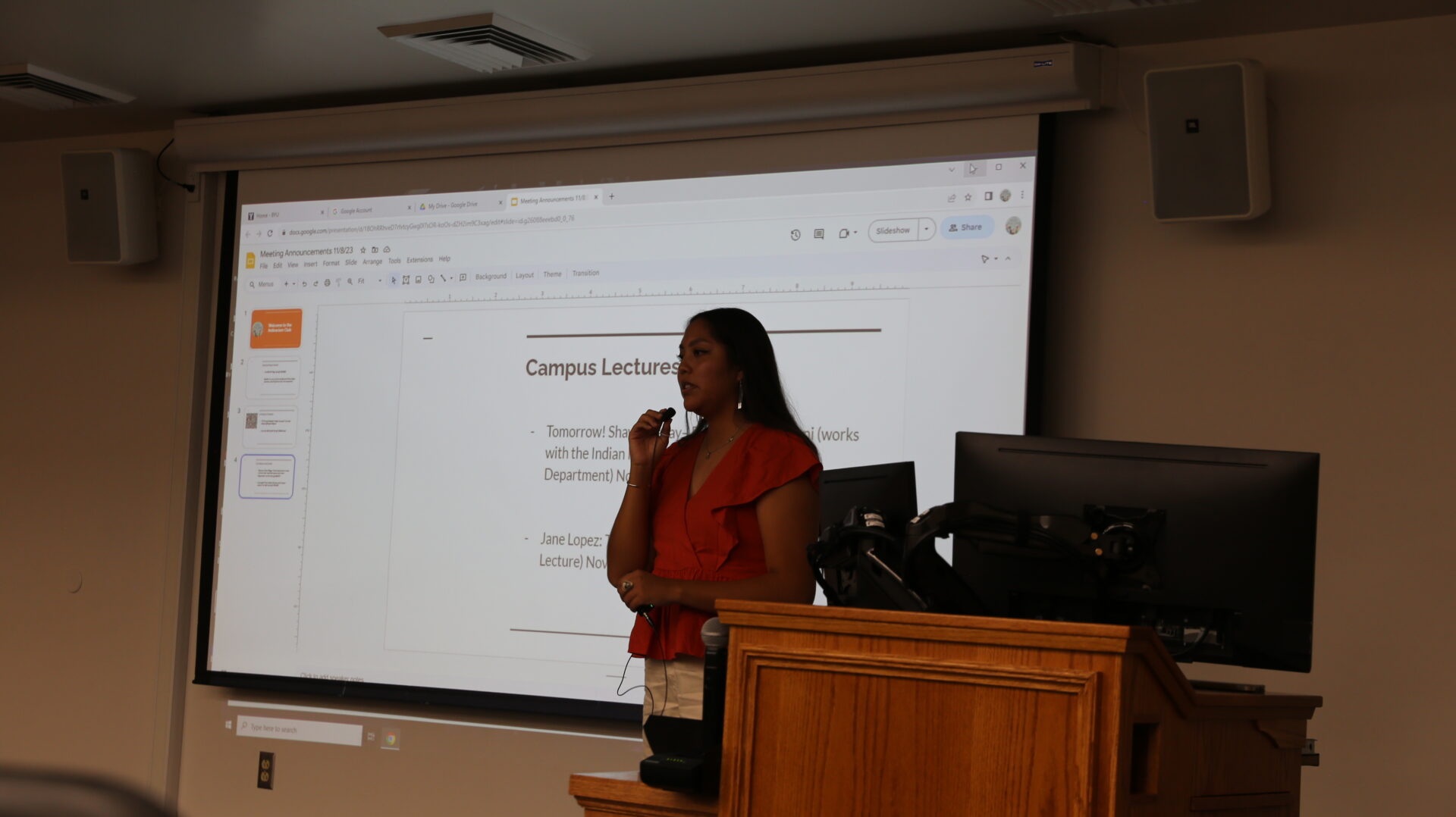
BYU’s Anti-Racism Club kicked off Native American Heritage Month by hosting Native American alumni who spoke about their various experiences as indigenous people on Wednesday, Nov. 8.
The event was organized by Dani Meza, a senior studying sociology, who is Native American herself. Meza is a descendant of both the Navajo and Assiniboine Sioux tribes.
Meza hoped the event would be a good use of her platform as a Native American student and help other BYU students learn new perspectives.
“I really hope that they were able to receive a greater understanding of the perspective about Native American Heritage Month from actual Native Americans,” Meza said about the event.
The speakers for the evening were Dion Tapahe, who is Diné (Navajo in English); Sunni Begay, from a reservation in Gallup, New Mexico and Meredith Lam, who is also Diné.
Tapahe, a BYU graduate with a degree in environmental science, addressed Thanksgiving as a Native American in her speech. She called attention to the vast number of federally recognized Native American tribes in the U.S. — more than 500.
“There are a ton of people, a ton of cultures, ways of speaking, living, traditions, anything like that. I think the first thing you have to think of when you approach this holiday is knowing that Native Americans don’t all have the same opinion about Thanksgiving,” Tapahe said. “I think approaching it from that mindset of saying, ‘Okay, this is a Native American, this is one person, let me get to know the person themselves, and with that comes culture, tradition, their families’. From there, I feel like that is also a part of allyship.”

For Tapahe, the Thanksgiving holiday is an interesting time for her family.
“Thanksgiving is a holiday where a lot of sorrow, a lot of happiness, a lot of emotions can come out. But I definitely think it’s a time that you yourself can learn about the history and learn about the Native Americans and think about your peers and think about how there are a lot more people who can connect with you without being your same race,” Tapahe said.
Because the holiday is federally recognized, her family receives time off regardless of if they choose to celebrate, so they usually use Thanksgiving as a chance to enjoy one another’s company. She said they approach the celebration as a remembrance of the anniversary of her grandmother’s passing and to celebrate the resilience of her people.
“Through everything, we still have Native people. I think that’s one of the coolest things ever,” Tapahe said.
Meredith Lam, a BYU graduate with a degree in English and minors in history and Native American studies, spoke at the event as well. Lam has been the director of Native American Education within the Provo School District for 15 years and facilitates support to fulfill cultural and educational needs for Native families in the district.
Lam shared stories of her family and tribe, the Diné. She spoke about growing up and spending time with her father, one of the only doctors who spoke Navajo.
“I remember being young and having these experiences where I would go out and be with my dad and see him perform services,” Lam said.
Her father, an OBGYN, would travel to homes to provide medical attention. One aspect of his job was to deliver difficult news to women of the tribe when necessary.
“There was a time in history … one of the many tragedies among the Native people, women were unknowingly having hysterectomies without their consent. It was called sterilization,” Lam explained. “My dad came in right at the tail end of sterilization and had to break the news to women, letting them know, ‘Well, you can’t have any more kids because you had this procedure performed on you.’ It was a way that the government was controlling the birth rates among Native people.”
She described her father’s heartbreak over delivering the news to these families.
“Families are really important to us,” Lam said of the Diné.

Lam shared a translation of the story of her maternal family line’s survival during “The Long Walk,” the forced relocation of the Diné people by the U.S. government from their native lands to a camp in an area known as Bosque Redondo.
Her maternal ancestor decided to escape the camp and return home for the sake of her newborn daughter, as those in the camps were starving to death. She escaped the guards by hiding herself and her baby in a cave, alongside a hibernating bear. When the bear awoke, she fought it off by hitting its nose, all while protecting her newborn daughter. She eventually walked all the way back home, finding a small number of remaining Diné people who were living on Navajo lands without detection. There, the Diné took her and her daughter in and cared for them until the surviving Diné were released from the relocation camps.
“At that time, Navajos did not have English or Spanish names. There were no surnames. The medicine man who named her must have had inspiration because her name means ‘Warrior woman who seeks for freedom,’” Lam said.
Less than 10,000 Diné survived the Long Walk and the camps at Bosque Redondo.
“We, the Navajo people, have survived. And today, there are over 300,000 descendants of those who went on the long walk. And of that, every single one of us that are Diné have parents, grandparents, great grandparents who also survived boarding school … Our narratives matter,” Lam said.

She said she feels the downfall of society is failing to listen to each other.
“I love that now we are in this generation … where Native people are here, indigenous people can tell our stories. We’ve always been capable, we’ve always had these stories of resilience. There’s so much we don’t know about each other, but what I love about Native American Heritage month is it is a time where I can help and teach others around me,” Lam said.
Additional events in celebration of Native American Heritage Month include a diversity and inclusion lecture by Jane Lopez titled “There Is Room” on Nov. 16, land acknowledgments at several sporting events and a Navajo Taco Sale on Tuesday, Nov. 14.




